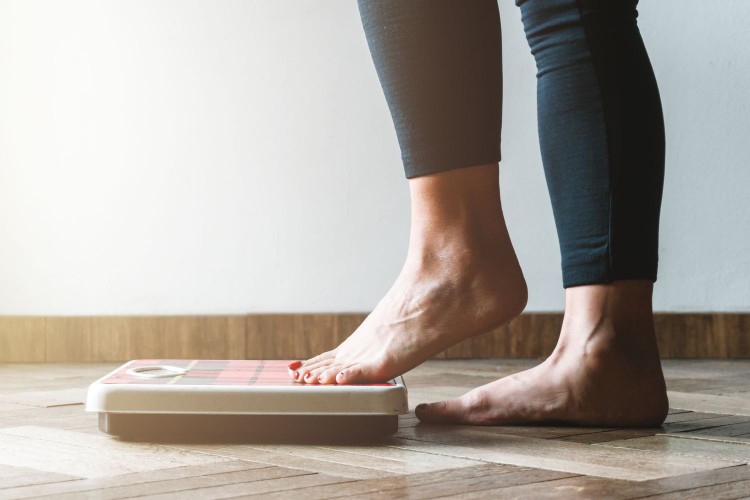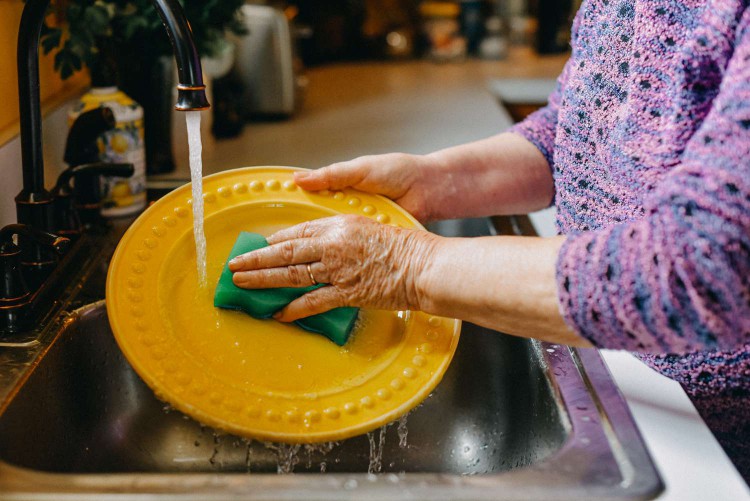Statins may lower vein blood clot risk among women on hormone therapy

- Hormone therapy is used to help alleviate menopausal symptoms like hot flashes.
- Menopausal hormone therapy has some known risks, including an increased risk of blood clots.
- Researchers from the University of Texas Medical Branch have found that adding statin therapy may help lower venous thromboembolism risk in women taking menopausal hormone therapy.
Hormone therapy is available to postmenopausal women to help alleviate some uncomfortable symptoms, such as hot flashes.
There are some potential risks to taking menopausal hormone therapy, a few of which center around the heart. These include a
Now, researchers from the University of Texas Medical Branch have found that statin therapy may help lower the risk of venous thromboembolismm (VTE) or deep vein thromboembolism (DVT) — a condition that happens when blood clots form in the veins — in women taking menopausal hormone therapy.
The study was recently published in the journal
Can hormone therapy cause blood clots?
Corresponding study author Dr. Susan C. Weller, professor in the Department of Population Health Science and Health Disparities at the University of Texas Medical Branch, noted the Women’s Health Initiative results appeared two decades ago.
This means many clinicians have been reluctant to prescribe estrogen therapy because of the Women’s Health Initiative finding that menopausal therapy caused women to have venous thromboembolism, she said.
“Venous thromboembolisms are potentially life threatening clots that can form in the arms and legs and may travel to the lungs,” Dr. Weller told Medical News Today. “And indeed, oral conjugated equine estrogen — with and without progestin — is associated with (a) higher risk of possible clots.”
In a
“However, we found that women 50–64 years of age who took oral contraceptives, or birth control pills, whether for menopause symptoms or prevention of pregnancy, were at three times higher risk of venous thromboembolism than women on menopausal hormone therapy,” she added.
Given that women suffering from menopausal symptoms may not be prescribed hormones because of clotting risks, Dr. Weller said it was important to find that there might be some hormonal options for menopause symptoms that are much safer than others.
“During our previous research on statin therapy, we
learned what statin therapy can do. Systematic reviews indicate statins can reduce the risk for venous thromboembolisms as well as major vascular events. If statins generally reduce venous thromboembolism and hormone therapy raises that risk, the next step was a natural extension: what happens if you take both? Our new study tested whether statin therapy might reduce hormone-associated venous thromboembolism risk.”— Dr. Susan C. Weller, corresponding study author
Hormone-statin therapy decreases blood clot risk
For this observational study, Dr. Weller and her team examined data from almost 224,000 women ages 50 to 64 between 2007 and 2019.
Within this study participant pool, researchers reported almost 20,000 had recent hormone therapy exposure and about 36,000 had current statin exposure.
When analyzing the data, scientists found the risk of venous thromboembolism was 53% higher in women recently exposed to hormone therapy without current statin therapy.
They also discovered that venous thromboembolism risk dropped to only 25% in women recently exposed to both hormonal therapy and current statin therapy.
“Some types of estrogens may change the way that the body’s natural clotting processes work, increasing the activity of clotting cascades,” Dr. Weller said.
“Statins reduce venous thromboembolism and it isn’t really clear how it happens, though the scientific evidence so far suggests it is related to decreased inflammation. What we do know, however, (is) that statins are generally well-tolerated, are widely prescribed for cardiovascular disease, and reduce the risk for major vascular events.”
What are the benefits and risks of statin-hormone therapy?
Based on the results of this study, Dr. Weller said it appears that if a patient has a reason that statin therapy would be recommended, it does not necessarily mean that hormonal therapy can’t also be prescribed and that initiation of hormonal therapy early in the perimenopausal period may carry less risk than initiating in later years.
“The observed risk in our studies was lower than the rates observed in the large clinical trials two decades ago, but in those trials, the higher rates may have been due to the route of exposure (oral), the type of estrogen (conjugated equine estrogen), and the majority of women initiated hormone therapy after 60 years of age,” she explained.
“(And) we would like to remind women and clinicians there remains the possible risk for
“We invite clinicians to consider whether hormone therapy is right for their patients, given that the risks of venous thromboembolism may be lower with careful choice of type of estrogen, route of exposure, and statin therapy,” she continued. “While venous thromboembolism risk may still be present with menopausal hormone therapy, that risk may be tolerable to patients and clinicians when compared to the alternative of suffering through hot flashes and other menopausal symptoms. High-intensity statins, particularly, appeared to reduce risk by about 30% in women taking hormone therapy.”
— Dr. Susan C. Weller, corresponding study author
Statins offer a preventive option for vein blood clots
MNT also spoke about this study with Dr. Jennifer Wong, a board certified cardiologist and medical director of Non-Invasive Cardiology at MemorialCare Heart and Vascular Institute at Orange Coast Medical Center in Fountain Valley, CA. Dr. Wong was not involved in the research.
Dr. Wong said that studies like this not only reiterate the potential small risks of hormone therapy, but they offer preventive options for those who need to take hormone therapy.
“Hormone replacement therapy has long been known to increase the risk of blood clots, which for most people may not be clinically significant, but occasionally will lead to serious consequences,” she explained.
“Statins have long been sought to decrease clot formation in both the veins and arteries likely by inflammation and adhesion of clotting factors along the vessel walls, so it makes sense that it can decrease your risk of venous thrombosis.”
“[The next steps for this research should look] at women on hormone replacement therapy, who may not otherwise meet criteria to be on statin drugs, randomized to statin therapy or no statin, and then see if statin therapy decreases the risk for venous thromboembolism in women who may not otherwise have increased risk for cardiovascular disease.”
— Dr. Jennifer Wong, board certified cardiologist








